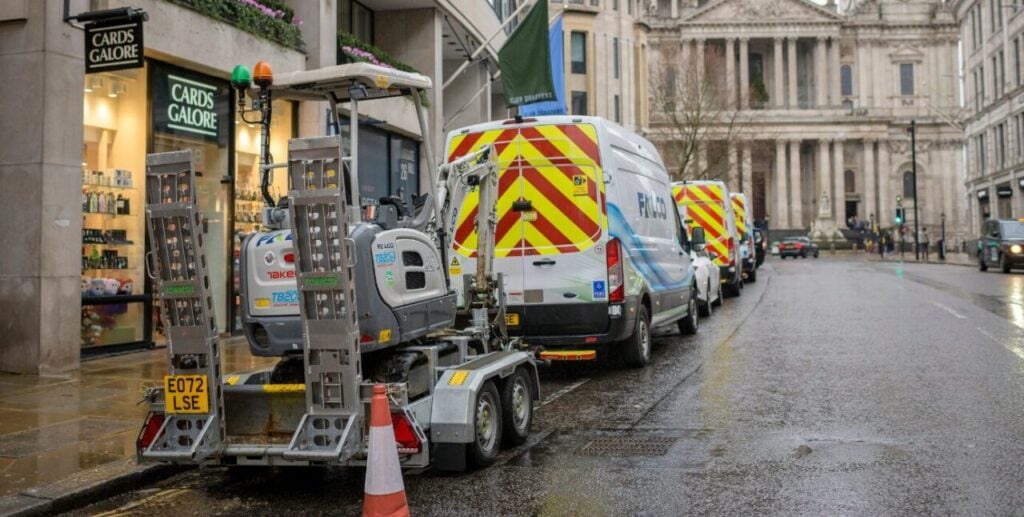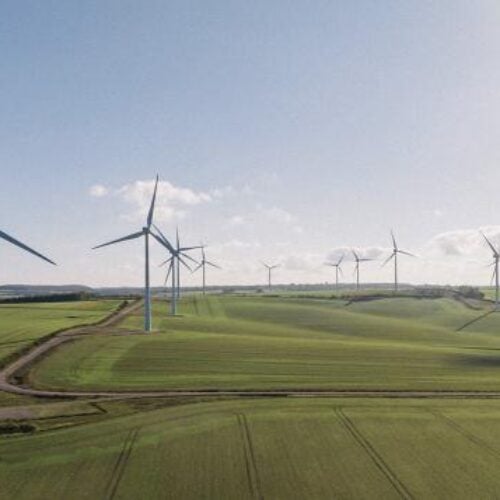Electricity distributor UK Power Networks (UKPN) has partnered with a construction company to trial zero emission electric diggers for network maintenance.
Falco Construction has worked alongside UKPN to deploy new excavators on the network’s underground assets, and the companies say that the results so far have been positive.
Falco’s Takeuchi TB20e is fully electric and will, if the trial is successful, replace Falco’s fleet of 120 diesel diggers. As well as the environmental benefits, the e-diggers are claimed to be 75% quieter than the diesel version. They would be used across UKPN’s network areas in London, the South East and the East.
According to support services director at Falco Construction Alan Seyfi, the Takeuchi model is the first electric excavator that performs comparably with its diesel counterpart.
Reportedly, the vehicles last three to five days per charge and the trial has “put to bed” concerns about range anxiety, power issues and handling.
London’s deputy mayor for environment and energy Mete Coban said: “We know that construction vehicles such as diggers contribute significantly to air pollution, which is why the Mayor has tightened standards across London. Technology like this will help to ensure Londoners, particularly those who live in the most deprived parts of London, can breathe cleaner air.”
UKPN said the positive feedback “cemented the trial as a way forward for construction and utility works in the capital and beyond”.
Decarbonising construction vehicles
UKPN’s trial follows the recent announcement from construction company JCB that its hydrogen combustion engine was cleared by licensing authorities in Europe for commercial use.
JCB chairman Lord Bamford said the certification’s presence in so many European countries “bodes very well” for the future of hydrogen combustion technology.
“JCB has proved in recent years that it is a proper zero emissions solution for construction and agricultural equipment. This formal type approval/certification paves the way for the sale and use of hydrogen engines right across the UK and Europe.”
Although a hydrogen combustion engine does not produce carbon emissions, it does produce equally undesirable nitrogen oxides. The process of extracting, producing, and transporting raw hydrogen is also, currently, immensely carbon-intenstive.
All-electric solutions could ultimately be seen as the more climate-friendly option, but for high-power or heavy vehicles, the size of battery required creates roadblocks in itself. This can be seen in the ongoing effort to decarbonise heavy goods transportation; currently, the UK has only one dedicated truck-specific EV charging location and the upfront cost of installing charging provisions at the depot, combined with the vehicle costs, is prohibitive.






